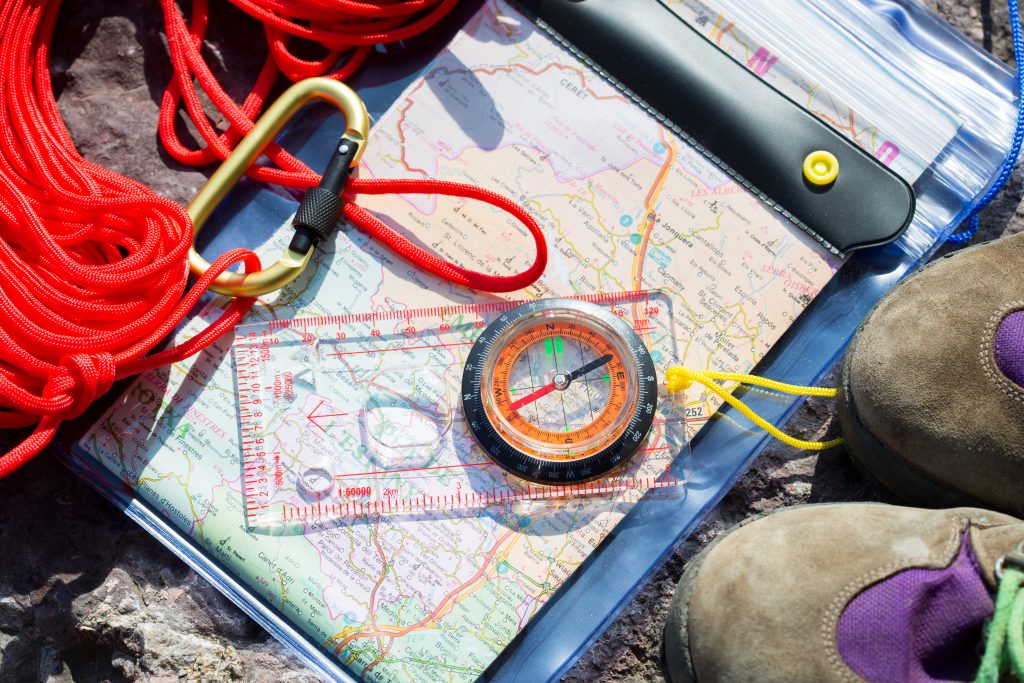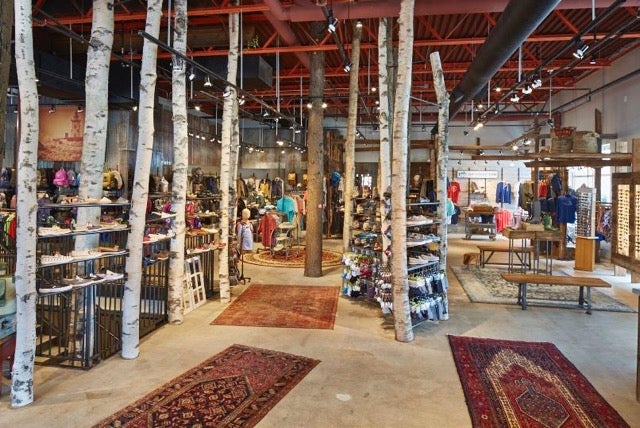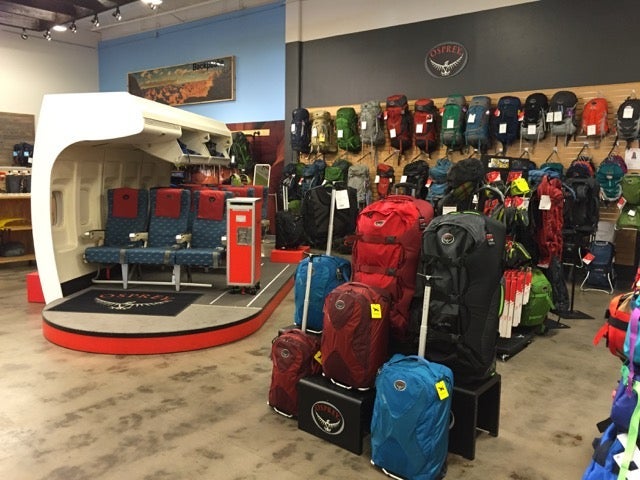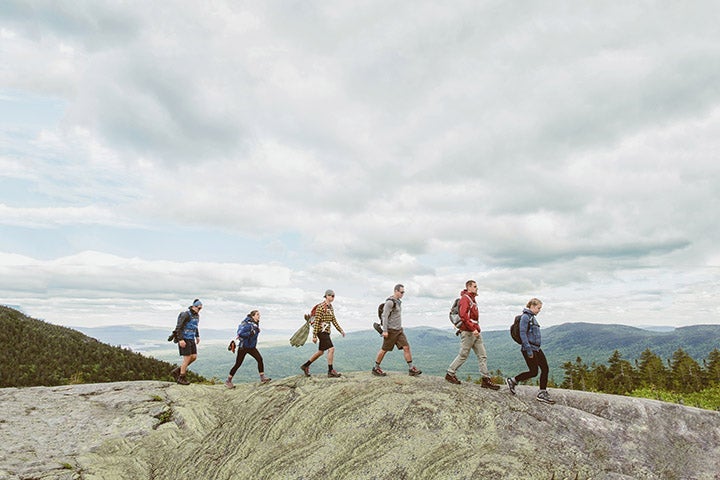How to sell more adventure travel gear
Establishing Your Adventure Travel Business for Endgame Success
A love for adventure travel often encourages people to initially become business owners within the industry, but in the flurry of branding a company, hiring employees, and promoting products and services, few people consider how to leave the business as well. Yet proper planning from the very early stages of a company’s founding can help guide a business toward its long-term goals and eventually provide a seamless and painless exit when it’s finally time to bow out.
Someone may want or need to give up ownership of a company for a variety of reasons. Sometimes things just aren’t profitable, and bankruptcy is necessary. Perhaps a company has been profitable, but it’s time to retire and pass it on to the next generation of the family. For the purposes of this article, we’ll assume the position most travel companies are likely in — not facing bankruptcy nor having a family member to whom to pass the business but simply ready to retire or sell the business and move on.

It’s important for adventure travel business owners to begin mapping their exit strategy before they start thinking about leaving the industry.
There are two ways for people to sell a company: sell the entire company including all their shares of it or sell off the assets (such as the established business relationships, client contact information, and equipment like road bikes or hiking equipment). Occasionally companies evaporate — or simply shut down — due to the fact they don’t hold much value or the people selling believe assets are worth more than they are willing to sell for so no buyer can be found.
Timing
Exit planning is a popular business-related topic that continues to surface in the adventure travel industry. ATTA members are invited to learn more about the issue from those who have gone through the process via the popular webinar Succession Planning: The Future of your Adventure Business.
“Selling when you’re retiring is actually not the best timing,” Mona McPhee, a travel and tourism lawyer at Miller Nash Graham & Dunn LLP based in Seattle, Washington. This is because the timing is pegged to this specific event, and market conditions are often not as ideal as they could be. The actual ideal time to sell, she said, is right before a company is ready to take off in a big way. “You put in all the foundational work, it’s starting to grow, it’s getting bigger, and now you’ve positioned yourself to start scaling — that’s actually the best time to put the company up for sale,” McPhee said, though she noted that’s rarely what people working in adventure travel do because they’re often in the business because they love it, not to reap financial benefits from it.
Additionally, the time when a business owner decides to sell is not the ideal time to be thinking about the exit planning process either. In fact, the best time to think about how to leave the industry is at the very beginning of a company’s creation. “When I meet with someone who is just starting out in the industry or just starting a new company, I often ask them about what their exit strategy is at the front end, because if they’re thinking about that, that can affect what business model they ultimately adopt and how they put their resources into different things that need to happen on the front end or as the business is growing,” McPhee said.
For companies built with an exit strategy in mind — with all accounting and systems in place with the intention to sell the company — the exit process can take six to eight months, pending finding the right buyer. Realistically, however, this is more likely to be a three-year process, primarily due to the fact business owners need to make decisions about retirement or their next steps in life, get taxes and records in order, and ensure all liabilities are properly recorded. “Timing is driven by preparation,” McPhee said. “If you’re already running your business with all your ducks in a row anyway, then that timing is dramatically decreased.”
Valuation
A company’s value is, of course, one of the main considerations when preparing to sell. Over time, companies gain value, and it’s not just the products or services that hold value but also established relationships with clients, suppliers, sellers, and employees. “It’s worth hiring a consultant or company that does valuations,” McPhee said. “They’ll look at the past client list, what your tours are, and what the scalability of your company and your processes are.” For example, potential buyers may be interested in purchasing companies that have a solid business model ready to expand into new destinations or enhance existing tours a potential buyer already offers. This is where companies hold a lot of untapped value that makes them attractive.
In the adventure travel space, this scalability can be particularly powerful. Potential buyers may very well be adventure travel companies offering similar tours interested in expanding their geographical reach or companies working within a similar geographic area but interested in expanding their product offerings. For example, KE Adventure Travel, which was founded in 1984, was acquired by Voyageurs du Monde, a French company, in July 2017. “They do very, very well in the French market, and they saw us as a bridge into the English-speaking market,” said Tim Greening, a co-founder of KE Adventure Travel. In fact, the two companies had worked together for about 10 years.
“If you want to sell a company, it’s harder if you’re advertising to sell. You’re not going to get as good of a price than if you’re approached, if people want to buy you,” Greening said. “People want to buy you if you’re running a good business. If you have a good set of accounts, you have good staff, you have a great history. If you’re running a good business, people will approach you in the end.”
Process
Business owners only get one shot at negotiating a sale prior to presenting an offer to a potential buyer. Before these negotiations, it’s important to carefully consider all the terms of the sale and what benefits or role business owners want to maintain during and after the transition. This may include retaining specific perks of the job, such as the ability to travel for the company, or negotiating the ability to remain employed by the company in a certain capacity or for a certain period of time.

It is a good idea to work with legal counsel and a financial consultant to ensure all paperwork is in proper order.
Whether they’re just getting started, comfortably situated with their company, or are considering selling, there are a number of things business owners can do now to make the exit process significantly easier later; most notably, complying with best practices and legal requirements, which include taxation and accounting. “Best practices include really good record keeping, maintaining copies of all your contracts and relationships, and maintaining them in an organized fashion,” McPhee said.
Though these are the kinds of tasks that can be pulled together at the last minute, it is much easier if businesses manage these details over the lifetime of a company. On the legal side, this means ensuring a company is properly licensed in the places in which it is based and operates, and paying and maintaining proper tax records. Additionally, finances should be in order for at least three years prior to selling, and insurance policies need to be properly documented. Keep detailed records on all communication with potential buyers as well.
It is possible for someone to sell a company on his or her own, but McPhee recommends sellers work with legal counsel and a financial consultant to ensure everything is legally and financially sound. In the adventure travel industry, where companies may be dealing with international assets or selling to international buyers, she notes things can be even more complicated. “On the international side of it, certainly the taxation issue is going to be anywhere from more complex to ridiculously complex and costly,” she said, and this is where hiring the right help from the beginning of the exit planning process helps lay the groundwork for a smooth sale.
Business owners don’t have to go through the exit process alone, however, and one of McPhee’s key pieces of advice touches on one additional person who can assist from the very beginning: “If you are a passion-driven tour operator who’s in it for the travel and the human connection — if you don’t consider yourself a business person and you’re learning on the job — that’s yet another person to bring into your team: the business person.” His or her job is to pull all of the business-related pieces together while helping to keep the emotional aspects at bay, and there are people working in the adventure travel space who specialize in this area. “It’s those people who can see the industry and your business’s place in it to help you,” she said.
How to sell more adventure travel gear

Outside’s long reads email newsletter features our strongest writing, most ambitious reporting, and award-winning storytelling about the outdoors. >”,”name”:”in-content-cta”,”type”:”link”>>’>Sign up today.
As much as the outdoor industry might hate to admit it, the shutterbug wandering the streets of Rome has many of the same needs as the guy waiting for his backcountry skis to come through baggage claim. The overlap between what travelers and outdoorists want is even bigger than you might think, and the outdoor industry is in a better position than ever to take advantage it.
We owe that position, at least in part, to the demise of specialty luggage. Ten years ago, there were close to 3,000 luggage specialty shops in the US, says Don Godshaw, president of Travelon Bags. Today, that number sags below 1,000.
With the golden years of boutique luggage behind us and Millennials’ increasingly apparent disinterest in department stores, more customers are turning to outdoor and sporting goods stores for their travel needs.
Eagle Creek is one of the brands that has risen to fill the void; Marketing Director Lisa Buco says they’ve seen particular increases in sales of their larger luggage pieces, which feature tough fabrics and rubberized details that appeal to both travelers and outdoorists. They shout “Adventure!” without taking sides. Patagonia, Herschel and The North Face have also hopped on board, producing duffels and travel bags that can withstand both inclement weather and TSA’s manhandling.
Help customers understand what they want
Luggage is but one example of the considerable crossover between travel and outdoor. Instead of looking for differences between the two markets, brands and retailers should be seeking similarities, marketing as if they have not two disparate audiences, but one with both travel and outdoor interests. People want to define how they use their own gear, rather than brands explaining which backpacks are for climbing versus traveling, for example.
That helps avoid the paradox of marketing to hardcore adventurers without turning off newcomers and vice versa, says ExOfficio General Manager, Brian Thompson.
“We try to position product in a way that’s accessible to everyone. One person’s adventure might be more extreme than another’s, but to us, they’re both great,” Thompson says.
Everyone, regardless of destination, is buying gear for one reason: They want to be comfortable. Part of comfort is having a working raincoat or blister-busting shoes, and part is having peace of mind. Products as simple as packing solutions eliminate one extra stressor in the life of a traveler. The story brands and retailers need to be telling is how their product is going to make a trip more comfortable.
Harness the impulse, market to the spontaneous shopper
Adventure Travel Trade Association President Shannon Stowell says that with the mainstreaming of adventure travel, he’s seen softer itineraries, a lower percentage of hardcore adventure-seekers, and an increase in first-time adventurers.
That’s where knowledgeable staff members come in. Luggage and other essentials draw travelers into the store, where employees have the opportunity to teach the customer about the apparel or accessories available to them and fill in any gaps in their packing — and shopping — lists.
Here, accessories are a key money-maker. Godshaw says the travel company’s decision to specialize in smaller bags and inexpensive gadgets has been their secret to success, both in the outdoor world and in the wider travel market.
“Gross margin on accessories [like packing solutions, luggage tags, socks, and adapter plugs] is significantly larger than gross margin on [larger] bags,” he says. “We feel accessories should be 35 percent of travel business sales and 40 percent of gross margin.”
Capture the adventure atmosphere
To recommend accessories or add-ons, retailers need to do their homework first, says Chris Howe, owner and founder of shops Denali and Trailblazer: Get know the consumer as an individual, learn about his or her preferences, and figure out the needs of that specific trip. Even better if one of the staff members has been there and has some first-hand perspective on the trials of travel in that area of the world.
A thoughtful store atmosphere can spark those ideas, too.
When Howe was designing two of Denali and Trailblazer’s newest locations, he paid a visit to the local lumberyard and bought more than 150 trees to incorporate throughout the stores.

Howe turned his store into a forest. Photo courtesy of Denali/Trailblazer.
One of Summit Hut’s two locations hosts half an airplane, branded “Osprey Airlines,” to draw customers into the luggage section. Take a seat, imagine the clouds funneling past your window, and conjure the same butterflies you get when you’re coming in for a landing someplace new. When you exit the cabin, maybe you’ll grab the suitcase or backpack you know you’ll need for that vacation you started planning when you first sat down.

Get a feel for carryon bags at Summit Hut. Photo courtesy of Summit Hut.
The other Summit Hut features a map riddled with pins, and from each dangles a luggage tag bearing the information of each store visitor’s last trip. The engagement strategy works: dozens of customers have taken the bait, signing a tag, leaving a pin and even sending in photos from their expeditions, which Summit Hut features on the store walls.
Go the distance with tourism partners
Brands without a brick-and-mortar presence seldom see their consumers in person, but that doesn’t mean they can’t interact.
Partnerships are also a great way to extend reach and blend existing fan bases. The Maine Office of Tourism recently partnered with 104-year-old, family-owned apparel manufacturer L.L.Bean to sponsor six Maine adventure travelers and coproduce an issue of The Maine Thing Quarterly.

To help promote tourism in Maine, L.L.Bean sent a group of people who had never been there on a trip to explore the state’s greatest gems. Photo courtesy of the Maine Office of Tourism.
Though this is the first collaboration of its kind for the Maine Office of Tourism, Director Carolanne Oulette says such partnerships are trending across the US.
“We’re all looking for ways to cross-promote and extend our reach to a greater audience,” she says.
Oulette added that seeking out more brands for future partnerships is “definitely” a part of the five-year plan.
Brands and retail shops alike can team up with tour operators to exchange opportunities for exposure. ExOfficio keeps a kiosk for Seattle-based operator Evergreen Escapes in their brick-and-mortar stores to spread the word about trips in the Northwest.
“It’s a great cross-pollination,” says ExOfficio’s Thompson.
Like the marriage of travel retail and outdoor retail, these partnerships represent the opportunity for industry members to join hands and take the jump into uncharted new markets. That is, after all, is what adventure travel is all about.
20 Awesome Travel & Adventure Business Ideas
Almost everyone loves to travel and to have outdoor adventures. That’s is why they say, “if travel was free, you won’t have seen me for the second time”. As it’s super exciting to travel, doing it as a business is great too, however, not everyone thinks of opting it as a business.
Travel and adventure tours business needs not only your enthusiasm, but also investment, licencing and commitment, so if you think you should pursue a career in the filed, following are some of the businesses you might consider:

1- Adventure Club Business
It can either be a local adventure cafe, where adventurers come and spend some quality time. Or else, you can build up a niche community of adventure lovers online, i.e. something like TripAdvisor, but more specific to a certain region or an adventure sport.
2- Adventure Travel Agent
There are a lot of travel agents in the market and becoming one such might not be equally profitable. However, if you are someone who specializes in booking and organizing an adventure travel, you certainly have a competitive advantage.
3- Shuttle Service
A shuttle service will need substantial investment, however it can be highly profitable too. The profits can be really rewarding if you happen to acquire deals with Airports and big events.
Join Our Small Business Community
Get the latest news, resources and tips to help you and your small business succeed.
4- Bed and Breakfast
If you live in or own a property in a city that has a greater tourist activity, a bed and breakfast business is surely a great idea. Even if you do not own a property, you can get some property owners onboard and start selling services on their behalf and keep your profit.
5- Community Tour Guide
This is an ideal idea for young entrepreneurs who want to start a part time business and are not interested in a desk job.
6- Cruise Ship Travel Agent
Once the cruise trips were considered to be an elite’s interest only. But, with more affordable cruises operating almost around the world, this luxury travel can be interest of moderate income group too. There are a lot of cruises looking to sell, and a lot of people want to get on an affordable cruise. All you need to do is to get them connected and have your share of profit.
7- Extreme Adventure Trips
This is an exciting business opportunity, however, it requires quite a lot of permits and parallel planning and safety measures to run such a business.
8- Kayak Tours Business
Another exciting opportunity, even if you are based in a big city, you can make huge profits being a middle man. Get connected with the local Kayak renting companies, promote your business in big cities, and forward the clients to the local businesses.
9- Off Road Tours Business
This one is as exciting as some of the above ideas, and you can either start it separately or add an off rad adventure in your existing business model.
10- Specialty Travel Business
Well, the term specialty travel is very broad an you can innovate it to your own needs. However, caravan hires, or RV customization is very popular these days.
11- Tour Guide Business
You do not necessarily need to be a tour guide yourself. Rather you can create a group of tour guides in various cities around the country or around the world. The travelers book the tour guide with you, and make a full payment. You assign the job to a local guide and he get his money when the job is done.
12- Travel Agency Business
Yes, this old school business is still popular, despite the availability of too many travel websites. A vast majority of people still feel more comfortable with a travel agent than a website bot.
13- Rent a Motorcycle Ride
It can be quite a profitable business in the cities where a large number of solo travelers on budget visit.
14- Business Networking for Travelers
Yes, a business networking for travelers where they can benefit by each others expertise and experience or trips. For instance, a platform where travelers can charge a small amount for carrying some goods/documents of other travelers.
15- Luggage Delivery Services
Another old school business idea, but still very popular, as people still need their stuff to be delivered.
16- Private Taxi Hire
If you own a single vehicle, then a rideshare business is ideal. But if you have two or more vehicles, having a private taxi service in partnership with a local hotel or another business is a great idea.
17- Travel Blogging
Travel blogging and Vlogging is very much popular, and people often consider it one of the low cost and easy to start business. However, it’s not that easy to maintain a level where it pays you well. But if you are a travel lover and determined to do something that is focused purely on your personality, go for it!
18- Rent a Car
Another old business idea, but still very popular among entrepreneurs who have a fleet of cars or can afford investing in a fleet.
19- Pick & Drop Service for Offices
More and more businesses are moving to online ordering, but it requires a significant investment, and overhead costs for them to manage the delivery. This is when they consider hiring a third party delivery service. So, it can surely be a great business idea even if you have a fleet of motorcycles.
20- Pick & Drop for Schools
Not only schools and educational institutions, but a lot of businesses also look for pick and drop service for their workers. It can surely be a profitable business in a big city as well as in relatively smaller towns.
The Bottom Line
Well, think a bit more; consider the travel issues and opportunities around you, within your community and you may find a more exciting niche for your business. For instance, snow goose hunting can be a great group adventure for a lot of people living a busy life in a big city.
Source https://www.adventuretravelnews.com/establishing-your-adventure-travel-business-for-endgame-success
Source https://www.outsideonline.com/business-journal/brands/sell-adventure-travel-gear/
Source https://www.startupguys.net/travel-adventure-business-ideas/